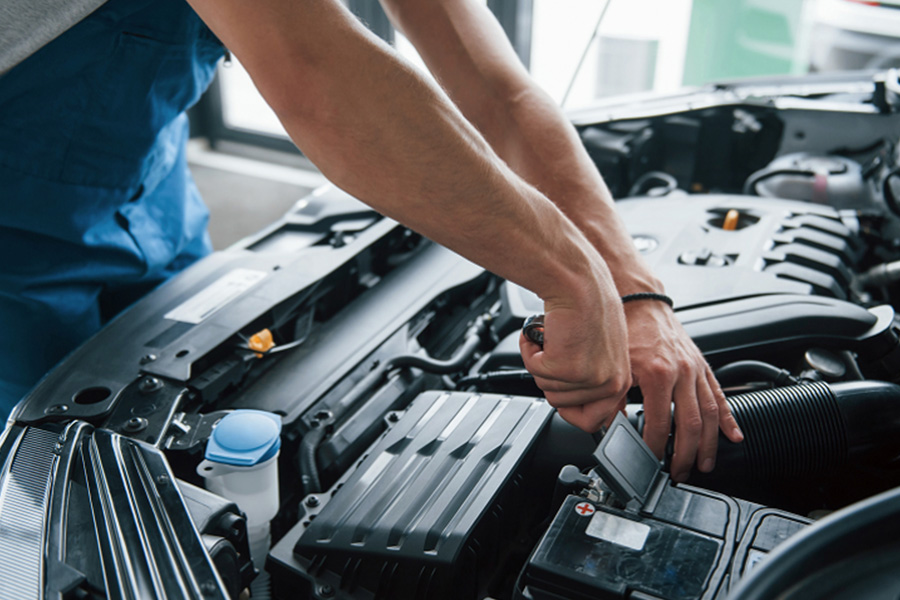What Affects the Lifespan of a Car Battery in Singapore?

A car battery normally lasts between 18 and 36 months, but several factors might shorten or lengthen that time. The local climate, driving habits, and urban infrastructure all influence how frequently drivers might need a car battery replacement.
Discover what affects a car battery in Singapore, allowing automobile owners to prevent sudden breakdowns and unnecessary costs.
Impact of the Tropical Climate
The constant heat and humidity in the city-state are key contributors to battery degradation. Unlike colder countries where low temperatures slow chemical reactions, warm climates like Singapore accelerate the internal chemical processes of a car battery. This instance leads to faster evaporation of electrolytes, corrosion of internal components, and overall reduced battery life. Prolonged exposure to high temperatures under the hood, especially in slow-moving traffic, further strains the battery. Even parked cars experience temperature build-up, particularly when left in open-air carparks without shade, causing batteries to degrade over time even when not in use.
Short-Distance Driving and Stop-Start Traffic
Urban driving habits in the region involve frequent short trips, congested roads, and a high frequency of stop-start activity. This driving pattern prevents the alternator from fully charging the battery, especially when trips are under 15 minutes. Over time, this results in a battery that is undercharged and more vulnerable to failure. The start-stop function in modern vehicles, while energy-saving, adds additional stress to the battery if not properly maintained. Vehicles used mostly for short urban commutes without occasional longer drives will typically need car battery replacement sooner than those used for longer, consistent drives.
Poor Battery Maintenance
Many drivers overlook basic battery maintenance. Dust and grime can accumulate on battery terminals, leading to poor electrical conductivity and corrosion. These minor issues can evolve into major electrical faults without regular inspection and cleaning. Additionally, failing to check the battery’s water levels, especially in non-maintenance-free batteries, can lead to internal damage due to electrolyte imbalance.
Alternator and Charging System Issues
A failing alternator or faulty charging system can silently wear down a car battery. The battery may never receive a full charge if the alternator is undercharging, leading to sulphation—a condition where lead sulphate crystals form on the battery plates and hinder performance. Conversely, an overcharging alternator can cause overheating and excessive water loss. In both cases, drivers may mistake the problem for a bad battery when it’s actually a larger electrical system issue. Regular diagnostic checks, particularly during car servicing, can detect these issues before they necessitate premature car battery replacement.
Quality of the Battery and Installation
Not all batteries are created equal. Cheaper batteries may be more prone to internal faults, faster deterioration, and shorter warranties. Using batteries that are suited for high-temperature performance and manufactured to meet local demands is critical. Additionally, improper installation or incompatible battery sizing can result in poor performance, vibration damage, or electrical mismatches. It’s always advisable to get batteries installed by experienced technicians who can ensure proper fitment and compatibility with the vehicle’s make and model.
Vehicle Electronics and Idle Consumption
Modern cars are increasingly reliant on electrical systems—even when not in use. Alarm systems, keyless entry, and onboard computers continue to draw power while the vehicle is parked. These phantom drains slowly deplete battery power, particularly in Singapore, where automobiles might be parked for extended periods in condo basements or public lots. The battery can discharge to the point where it can no longer start the engine if the car isn’t driven regularly. Drivers with multiple vehicles or who travel frequently should consider battery tenders or scheduled engine starts to maintain charge.
Conclusion
The lifespan of a car battery in Singapore is shaped by climate, driving behaviour, maintenance practices, and the overall health of the vehicle’s electrical system. Drivers should adopt a preventive approach—routine inspections, quality battery selections, and addressing underlying system faults early—to avoid unexpected failures and ensure optimal battery life. Staying aware of these factors can reduce the frequency of car battery replacement and contribute to a more reliable driving experience in the city-state’s unique conditions.
Contact Battery Tyre Road Rescue to book your replacement or check battery prices now.




